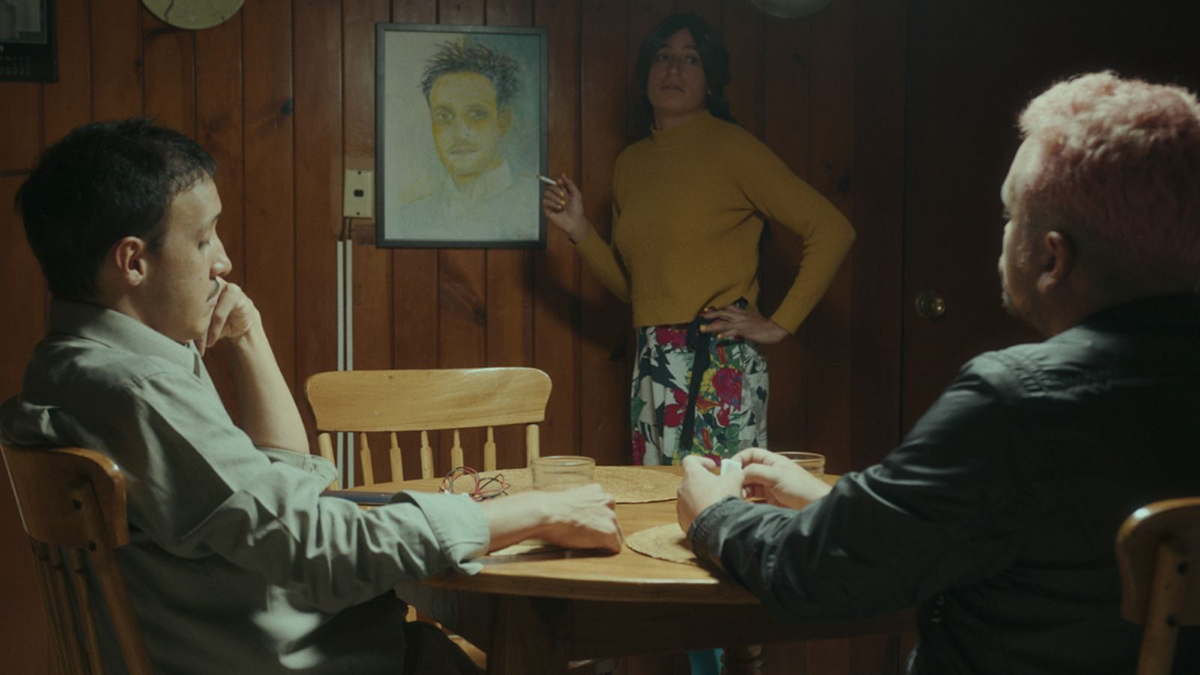Modern sexuality and sensuality have been slowly making their way back into cinema – just see 2023’s Hit Man or this year’s Challengers. In Nicolás Pereda’s Lázaro at Night, there might not be any explicit sex on screen, but the characters at the heart of the film’s love triangle are constantly talking about it. The dialogue showcases the tension between our three lovers, all friends and actors trying to get parts in the same film. The result is an interesting rumination on modern sensuality and relationships that only lasts for a moment but leaves a lasting impact throughout the film.
The TIFF selection opens with a conversation between friends and sometimes lovers Luisa and Francisco about how to tell their other friend, Lázaro, they’ve been sleeping together (all three characters share names with their actors, blurring the lines between reality and fiction a bit). It’s a tense but also real moment that doesn’t shy away from the humor of the mundane. Before they retire to bed, Luisa asks about a stubborn kitchen light that won’t shut off. “Does this one stay on always?” she asks. In Lázaro, talk of trysts and affairs is grounded by the reality of the situation, adding a dimension that feels undeniably real.
Later, when Luisa talks to Lázaro about the affair, a comedy of cringe and errors ensues. Lázaro is at the home of the director they’ve all been auditioning with for a part in an upcoming film, and has invited Luisa over. Post-confession, a conversation opens up an awkward dynamic between the two: “Did you invite me over to have sex?” she asks. “At first yes, but I’m not sure I’m in the mood anymore,” he replies. “I’m not always in the mood when I do it,” Luisa retorts. Grounding sex and sensuality in the very messy realities of human relationships.
Lázaro at Night continues this indirect dialogue right up until the last act of the film, which shifts the narrative completely and begins to blur continuity, story, and ideas while keeping the sensuality and comedy of its initial parts.
After melting into something of a memory bank of time spent with the trio and their former acting teacher, the film turns into a literal adaptation of Luisa’s take on the story of Aladdin, with Lázaro playing the title role. There is nothing initially, outwardly sensual about this story, but there are quiet moments with Lázaro-as-Aladdin in a river, washing dishes, and then bathing that provide a direct contrast to the previous depiction of sexuality mediated by the complications of human relationships. Here, away from the constraints of reality, Lázaro has some sensuality and some time for himself in a fictional, but simpler setting.
Director Nicolás Pereda’s work here is challenging and interesting. Lázaro at Night highlights the ways modern sexuality intresects with messy, sometimes awkard relationships. It can feel like a reflection of our humanity, whether we like what we see or not.
Even when the film shifts, the presence of sensuality in the fictional Aladdin retelling is notable for its matter-of-factness. Lázaro-as-Aladdin is far away from the relationships that made sex and sensuality a comedy of errors before and now he can just be, as is, without the complications but with all the feeling. It’s not an ending without human relationships at all (Lázaro-as-Aladdin still has his mother whom he cares for), but it underscores the previous depictions of modern sexuality as a social comedy.
Pereda is inviting us, like his characters, to reflect on our relationships with others and ourselves: what does modern sensuality look like when no one else is around? It’s a provocative question that gives Lázaro at Night a unique edge.

